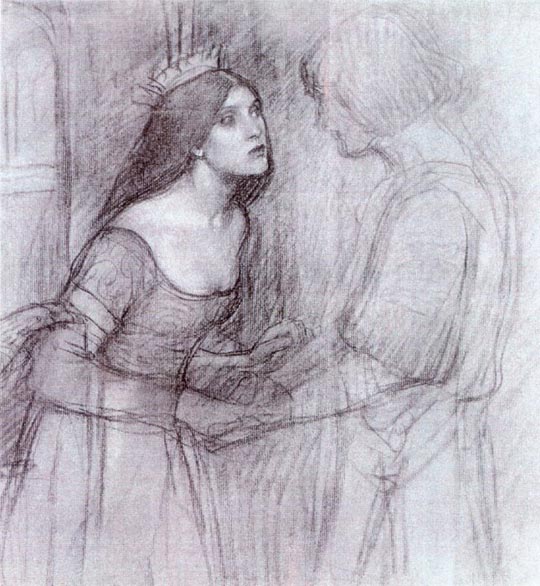Who looks twice
at a crippled woman,
except to give her crooked looks,
crooked like her crooked back?
Crooked, not friendly -
for I am not normal,
I am a mistake,
a burden, not a blessing,
to all and to myself -
not worth much.
I am "just a woman".
I am "that cripple".
I am a failure
in this world bent on success.
Not worth much.
But now I see
your love, o Lord,
which values even me -
"Abraham's daughter"
is what you call me -
not an outcast anymore.
You look at me so differently,
you lift me up,
you make me new.
I don't need to be perfect
to be perfect for you;
you love me
just as I am,
the one the world had thrown away.
And now I know: to you
I am worth much.
_______________________________________________________
[August 2012]
I wrote this back when a new Trisomy 21 test was introduced in Switzerland (a test enabling pregnant mothers to check whether their baby has Down's Syndrome). In the meantime I learnt in an Ethics course that in America nowadays, most children with Down's Syndrome are aborted, and if parents opt to keep theirs, they are criticised for "burdening society".
How do we view disabled people? Are they "incomplete people"? Are they (as to the Pharisees in Lk 13) worth less than a donkey or an ox that falls into a ditch? Jesus questions why one is allowed to rescue a wounded animal on the Sabbath, but not a sick or disabled person. He calls the crippled woman a "daughter of Abraham", honours her as a complete person, as a person for whom the blessing of Abraham counts just as much as for the healthy people.
What I learnt in that Ethics class (from reading Wolfgang Huber) is that nowadays people tend to have an "olympian" idea of the "perfect human being" as someone athletic and healthy. The Bible, on the other hand, shows us the suffering Christ. According to the Bible, humanity reaches its perfection not in a healthy young athlete, but in a weak and dying wreck on a cross!
We need to change our way of looking at people. We need to value the broken, not only give it value once it's become whole. Jesus heals the crippled woman - but to him she is a "daughter of Abraham", a complete human being, before she is able to stand straight again. Even if she were to remain crippled, she would be equally valuable to him. And she should be equally valuable to us, because biblically, health and physical perfection are not what make out a complete human being.



.jpg)